Fiche Personne
Cinéma/TV
Histoire/société
Média

Gaston Kaboré
Réalisateur/trice, Producteur/trice, Scénariste
(Homme)
Burkina Faso

Français
Réalisateur, scénariste, producteur et formateur burkinabè. Né en 1951 à Bobo-Dioulasso (Burkina Faso), Gaston Jean-Marie Kaboré obtient une maîtrise d'histoire à La Sorbonne avant d'étudier à l'Ecole Supérieure d'Etudes Cinématographiques (ESEC). C'est à la vision de Xala (1975), du réalisateur sénégalais Ousmane Sembene, qu'il envisage pour la première fois le cinéma comme un moyen d'explorer et de faire découvrir la culture africaine. Ill réalise son premier long-métrage au Burkina-Faso : Wênd Kûuni, (Le don de Dieu en 1982), récompensé par le César du film francophone ce qui lui vaut une reconnaissance internationale. Ce premier long métrage sera suivi de Zan Boko (1988), de Rabi (1992) qui remporteront également de très nombreux prix, et de Buud Yam (1997), Etalon d' Or du FESPACO 97. Scénariste, réalisateur et producteur, Gaston Kaboré a par ailleurs réalisé plusieurs documentaires ainsi qu'un chapitre de Lumière et compagnie (1995), film choral pour les cent ans du cinématographe. Gaston Kaboré n'a cessé de promouvoir le cinéma africain, notamment en dirigeant le Centre National du Cinéma du Burkina (1977-1988) mais aussi en tant que secrétaire général de la FEPACI (Fédération Panafricaine des Cinéastes) entre 1985-1997. Il a fondé en 2003 l'Institut de Formation en Audiovisuel Imagine basé à Ouagadougou.
English
Burkinabese Film director, screenwriter, producer and trainer. Born in 1951 in Bobo-Dioulasso (Burkina Faso), Gaston Jean-Marie Kaboré became interested in how Africa was portrayed abroad during his studies in history in Paris. This led him, in 1974, to study cinematography at the Ecole Superieure d'Etudes Cinematographiques. After returning to Africa, Kaboré was made director of the Centre National du Cinema and taught at the Institut African d'Education Cinematographique. Kaboré's first feature, Wend Kuuni (1982) was a breakthrough for African cinema, notable for the way in which it translated African oral tradition to the screen. His next film, the documentary Propos sur le cinéma (Reflections on the cinema, 1986), featured directors Souleymane Cissé from Mali and Mauritanian director Med Hondo discussing the problems facing filmmakers on the continent. Kaboré produced his second feature, Zan Boko, in 1988 and followed this with a short documentary on a celebrated Burkinabe singer and dancer. Kaboré contributed to the BBC's Developing Stories, a series of six films by talented filmmakers from the developing world focusing on environmental and developmental issues. He offered Rabi (1993), which won the first prize for young people's films at the Okomedia International Ecological Film Festival.Kaboré's international recognition was further marked by his participation in the film Lumière et compagnie (1995) in which 40 directors were asked to make a short film with the original Cinematographe invented by the Lumiere Brothers. His most recent feature Buud Yam (1997) won the Grand Prize at the FESPACO film festival in 1997. As for his experience, duties and expertise, he was inter alia technical adviser in charge of film beside the Ministry in charge of Information and Culture of Burkina Faso (1977-1981), Manager of the National Film Center (1977-1988), lecturer at Institut Africain d'Etudes Cinématographiques (INAFEC) within the university of Ouagadougou (1977-1986), member of the organizing committee of FESPACO since 1978, Secretary General of the panafrican federation of filmmakers (FEPACI), member of the experts' committee for the settlement of an interafrican consortium for film distribution (CIDC) and the interafrican centre of film production (CIPROFILM) (1977-1986), General Secretary of FEPACI (1985-1997), member of the artistic council of "Afrique en creation" (1991-1993), member of the board of directors of "Ecrans sud" in France. He is also the founder of CINECOM-PRODUCTION created in 1989, and IMAGINE his own film school, qualified in audiovisual and multimedia training that Kaboré currently runs in Ouagadougou, Burkina Faso.
Films(s)
-
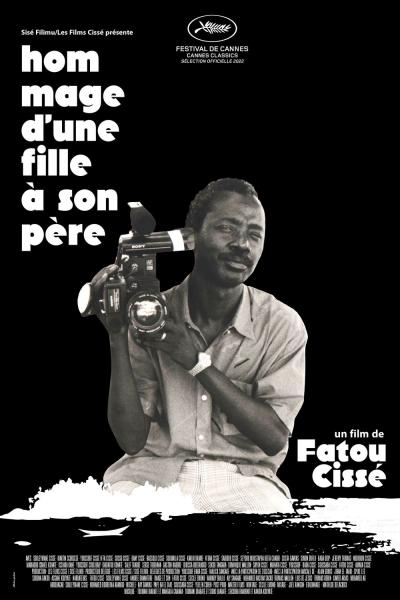 Hommage d’une fille à son père : Souleymane CisséLong-métrage – 2022Ce film retrace l’enfance, la jeunesse et le travail du réalisateur malien Souleymane Cissé. Son rapport avec sa famille, ses collègues et ses amis. L’histoire d’un cinéaste racontée par sa fille. À travers le témoign…Gaston Kaboré est lié(e) à ce film en tant que acteur/trice
Hommage d’une fille à son père : Souleymane CisséLong-métrage – 2022Ce film retrace l’enfance, la jeunesse et le travail du réalisateur malien Souleymane Cissé. Son rapport avec sa famille, ses collègues et ses amis. L’histoire d’un cinéaste racontée par sa fille. À travers le témoign…Gaston Kaboré est lié(e) à ce film en tant que acteur/trice -
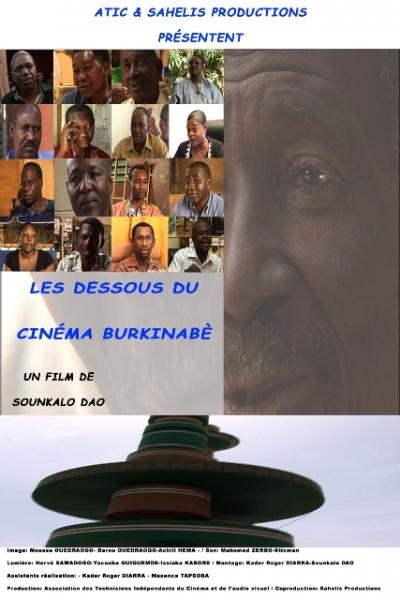 Dessous du cinéma burkinabè (Les)Moyen-métrage – 2010Différents professionnels du cinéma burkinabè en font le diagnostic et proposent des pistes de solutions pour sortir les films du Burkina de l’ornière. Le cinéma burkinabé a connu des années de gloire notamment à trav…Gaston Kaboré est lié(e) à ce film en tant que acteur/trice
Dessous du cinéma burkinabè (Les)Moyen-métrage – 2010Différents professionnels du cinéma burkinabè en font le diagnostic et proposent des pistes de solutions pour sortir les films du Burkina de l’ornière. Le cinéma burkinabé a connu des années de gloire notamment à trav…Gaston Kaboré est lié(e) à ce film en tant que acteur/trice -
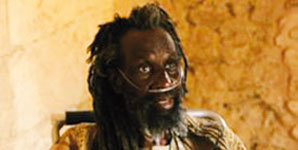 Afrique vue par… (L’)Long-métrage – 2009L’Afrique vu par… est une oeuvre collective de dix (10) courts métrages signés par des réalisateurs africains. Film collectif produit et présenté au 2ème Festival Panafricain d’Alger (Panaf’ 2009, Algérie) Algérie …Gaston Kaboré est lié(e) à ce film en tant que réalisateur/trice
Afrique vue par… (L’)Long-métrage – 2009L’Afrique vu par… est une oeuvre collective de dix (10) courts métrages signés par des réalisateurs africains. Film collectif produit et présenté au 2ème Festival Panafricain d’Alger (Panaf’ 2009, Algérie) Algérie …Gaston Kaboré est lié(e) à ce film en tant que réalisateur/trice -
 2000 génération d’Afrique – 2000 جيل إفريقياCourt-métrage – 2009Gaston Kaboré évoque le riche patrimoine légué par les ancêtres, à travers sculptures et totems africains. Il pose à la fois la problématique du rapport à l’Histoire et de la conscience que celle-ci doit apporter aux Afr…Gaston Kaboré est lié(e) à ce film en tant que réalisateur/trice
2000 génération d’Afrique – 2000 جيل إفريقياCourt-métrage – 2009Gaston Kaboré évoque le riche patrimoine légué par les ancêtres, à travers sculptures et totems africains. Il pose à la fois la problématique du rapport à l’Histoire et de la conscience que celle-ci doit apporter aux Afr…Gaston Kaboré est lié(e) à ce film en tant que réalisateur/trice -
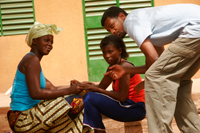 ExposedCourt-métrage – 2009Un mari trompé, une femme jalouse, un amant espiègle. Tous sont entraînés dans une course-poursuite amoureuse. A regarder à travers un trou de serrure. de Yidnekachew SHUMETE (Éthiopie, 2009, 3’57) 2009, Fiction coul…Gaston Kaboré est lié(e) à ce film en tant que producteur/trice
ExposedCourt-métrage – 2009Un mari trompé, une femme jalouse, un amant espiègle. Tous sont entraînés dans une course-poursuite amoureuse. A regarder à travers un trou de serrure. de Yidnekachew SHUMETE (Éthiopie, 2009, 3’57) 2009, Fiction coul…Gaston Kaboré est lié(e) à ce film en tant que producteur/trice -
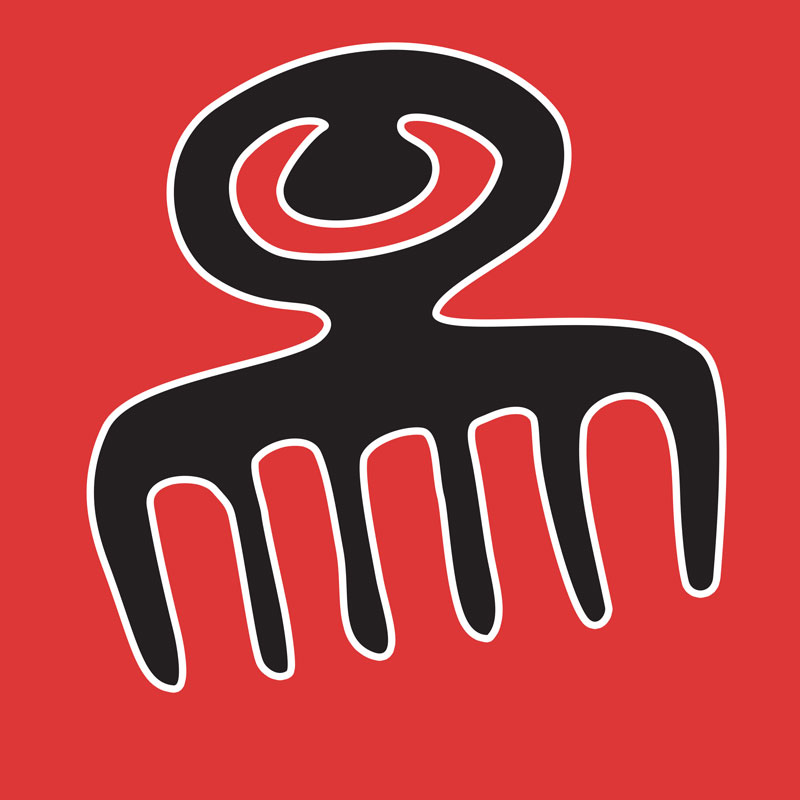 Peut-être un jour (Maybe one day)Court-métrage – 2009Des étudiants africains de différents pays se rencontrent dans le cadre d’un workshop sur le cinéma et parviennent à se comprendre malgré la barrière de la langue… d’Esley Philander Burkina Faso-Éthiopie 2009 | 3 m…Gaston Kaboré est lié(e) à ce film en tant que producteur/trice
Peut-être un jour (Maybe one day)Court-métrage – 2009Des étudiants africains de différents pays se rencontrent dans le cadre d’un workshop sur le cinéma et parviennent à se comprendre malgré la barrière de la langue… d’Esley Philander Burkina Faso-Éthiopie 2009 | 3 m…Gaston Kaboré est lié(e) à ce film en tant que producteur/trice -
 Regard d’Afrique– 2008Focus sur quelques figures de proue du cinéma africain. Gaston Kaboré en est un. La dimension de ce maître qui a formé nombre de grands cinéastes africains et reproduit des classiques enseignés dans de nombreuses univers…Gaston Kaboré est lié(e) à ce film en tant que acteur/trice
Regard d’Afrique– 2008Focus sur quelques figures de proue du cinéma africain. Gaston Kaboré en est un. La dimension de ce maître qui a formé nombre de grands cinéastes africains et reproduit des classiques enseignés dans de nombreuses univers…Gaston Kaboré est lié(e) à ce film en tant que acteur/trice -
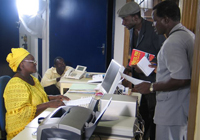 Trafic d’idéesCourt-métrage – 2006Réalisé par un collectif de stagiaires 2006, Fiction couleur, 10 min Imagine, Burkina Faso ____ Deux détectives pénètrent dans un établissement avec pour ambition de faire la lumière sur les activités qui s’y déroule…Gaston Kaboré est lié(e) à ce film en tant que scénariste
Trafic d’idéesCourt-métrage – 2006Réalisé par un collectif de stagiaires 2006, Fiction couleur, 10 min Imagine, Burkina Faso ____ Deux détectives pénètrent dans un établissement avec pour ambition de faire la lumière sur les activités qui s’y déroule…Gaston Kaboré est lié(e) à ce film en tant que scénariste -
 Fespakistes (Les)Moyen-métrage – 2001Tourné pendant le Festival panafricain de Ouagadougou [Fespaco], en 1999 et 2001, et sur les tournages de films africains, des cinéastes africains francophones et anglophones parlent sans détour de leur condition de ciné…Gaston Kaboré est lié(e) à ce film en tant que acteur/trice
Fespakistes (Les)Moyen-métrage – 2001Tourné pendant le Festival panafricain de Ouagadougou [Fespaco], en 1999 et 2001, et sur les tournages de films africains, des cinéastes africains francophones et anglophones parlent sans détour de leur condition de ciné…Gaston Kaboré est lié(e) à ce film en tant que acteur/trice -
 Faso contre le sida 1 : vivre ensemble malgré le virusCourt-métrage – 2001Même si la Constitution du Burkina Faso prévoit clairement la protection de la vie privée et interdit toute forme de discrimination, les cas de malades du sida persécutés jusque dans leu…Gaston Kaboré est lié(e) à ce film en tant que réalisateur/trice
Faso contre le sida 1 : vivre ensemble malgré le virusCourt-métrage – 2001Même si la Constitution du Burkina Faso prévoit clairement la protection de la vie privée et interdit toute forme de discrimination, les cas de malades du sida persécutés jusque dans leu…Gaston Kaboré est lié(e) à ce film en tant que réalisateur/trice -
 Faso contre le sida 2 : pour la prise en charge familialeCourt-métrage – 2001En Afrique, traditionnellement, c'est la famille qui doit s'occuper de ses malades. Mais devant la difficulté psychologique que représente le sida, de nombreuses associations servent de trait d'…Gaston Kaboré est lié(e) à ce film en tant que réalisateur/trice
Faso contre le sida 2 : pour la prise en charge familialeCourt-métrage – 2001En Afrique, traditionnellement, c'est la famille qui doit s'occuper de ses malades. Mais devant la difficulté psychologique que représente le sida, de nombreuses associations servent de trait d'…Gaston Kaboré est lié(e) à ce film en tant que réalisateur/trice -
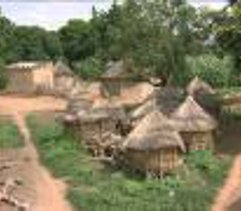 Faso contre le sida 3 : pour l’accès à une prise en charge globaleCourt-métrage – 2001Le monde associatif joue un grand rôle au Burkina Faso dans la prévention et l'accompagnement des malades du sida. Depuis les entretiens préparatoires au test jusqu'à la prise en charge…Gaston Kaboré est lié(e) à ce film en tant que réalisateur/trice
Faso contre le sida 3 : pour l’accès à une prise en charge globaleCourt-métrage – 2001Le monde associatif joue un grand rôle au Burkina Faso dans la prévention et l'accompagnement des malades du sida. Depuis les entretiens préparatoires au test jusqu'à la prise en charge…Gaston Kaboré est lié(e) à ce film en tant que réalisateur/trice -
 Faso contre le sida 3 : transmission mère-enfantCourt-métrage – 2001Le Burkina Faso, où 40 % des enfants nés de mère séropositive contractent le virus, bénéficie du soutien des Nations unies pour ses programmes de prévention de la transmis…Gaston Kaboré est lié(e) à ce film en tant que réalisateur/trice
Faso contre le sida 3 : transmission mère-enfantCourt-métrage – 2001Le Burkina Faso, où 40 % des enfants nés de mère séropositive contractent le virus, bénéficie du soutien des Nations unies pour ses programmes de prévention de la transmis…Gaston Kaboré est lié(e) à ce film en tant que réalisateur/trice -
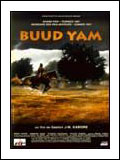 Buud YamLong-métrage – 1996Au début du XIXe siècle, en Afrique, en plein cœur de la boucle du Niger, un jeune homme du nom de Wend-Kuuni se lance dans un voyage imprévisible, à la recherche d'un guériss…Gaston Kaboré est lié(e) à ce film en tant que réalisateur/trice
Buud YamLong-métrage – 1996Au début du XIXe siècle, en Afrique, en plein cœur de la boucle du Niger, un jeune homme du nom de Wend-Kuuni se lance dans un voyage imprévisible, à la recherche d'un guériss…Gaston Kaboré est lié(e) à ce film en tant que réalisateur/trice -
 Lumière Et Compagnie– 1995Film collectif pour les 100 ans du cinéma. 40 réalisateurs ont tourné 52 secondes de leur choix sans son et en trois prises maximum avec la caméra originelle des frères LumièreGaston Kaboré est lié(e) à ce film en tant que réalisateur/trice
Lumière Et Compagnie– 1995Film collectif pour les 100 ans du cinéma. 40 réalisateurs ont tourné 52 secondes de leur choix sans son et en trois prises maximum avec la caméra originelle des frères LumièreGaston Kaboré est lié(e) à ce film en tant que réalisateur/trice -
 Loup et la cigogne (Le)Court-métrage – 1995"Les loups mangent gloutonnement. Un loup donc étant de frairie, Se pressa, dit-on, tellement Qu'il en pensa perdre la vie. Un os lui demeura bien avant au gosier. De bonheur pour ce loup, qui ne pouvait …Gaston Kaboré est lié(e) à ce film en tant que réalisateur/trice
Loup et la cigogne (Le)Court-métrage – 1995"Les loups mangent gloutonnement. Un loup donc étant de frairie, Se pressa, dit-on, tellement Qu'il en pensa perdre la vie. Un os lui demeura bien avant au gosier. De bonheur pour ce loup, qui ne pouvait …Gaston Kaboré est lié(e) à ce film en tant que réalisateur/trice -
 Un arbre appelé karitéCourt-métrage – 1994Le karité, arbre tropical, est bien connu dans la région ouest-africaine pour les nombreuses ressources qu’il offre. L’amande de son fruit savoureux offre un beurre végétal aux fabuleuses propriétés culinaires, médicales…Gaston Kaboré est lié(e) à ce film en tant que réalisateur/trice
Un arbre appelé karitéCourt-métrage – 1994Le karité, arbre tropical, est bien connu dans la région ouest-africaine pour les nombreuses ressources qu’il offre. L’amande de son fruit savoureux offre un beurre végétal aux fabuleuses propriétés culinaires, médicales…Gaston Kaboré est lié(e) à ce film en tant que réalisateur/trice -
 Chronique d’un échec annoncéCourt-métrage – 1993Un technocrate africain vient d’être nommé ministre. Il veut s’engager à fond dans le développement de son pays. Mais il se trouve paralysé par la lourdeur de l’administration et les sollicitations incessantes de son ent…Gaston Kaboré est lié(e) à ce film en tant que réalisateur/trice
Chronique d’un échec annoncéCourt-métrage – 1993Un technocrate africain vient d’être nommé ministre. Il veut s’engager à fond dans le développement de son pays. Mais il se trouve paralysé par la lourdeur de l’administration et les sollicitations incessantes de son ent…Gaston Kaboré est lié(e) à ce film en tant que réalisateur/trice -
 Roger, le fonctionnaireCourt-métrage – 1993Roger, un jeune homme qui vient d’intégrer la fonction publique après ses études, se heurte à la haine voilée de ses supérieurs hiérarchiques. En effet, convaincu qu’un fonctionnaire doit s’engager à servir son pays et n…Gaston Kaboré est lié(e) à ce film en tant que réalisateur/trice
Roger, le fonctionnaireCourt-métrage – 1993Roger, un jeune homme qui vient d’intégrer la fonction publique après ses études, se heurte à la haine voilée de ses supérieurs hiérarchiques. En effet, convaincu qu’un fonctionnaire doit s’engager à servir son pays et n…Gaston Kaboré est lié(e) à ce film en tant que réalisateur/trice -
 RabiLong-métrage – 1992Parti au marché vendre les pots d’argile que fabrique sa femme, le père de Rabi (dix ans), forgeron, trouve une tortue qu’il ramène à son fils. L’enfant est fasciné pa…Gaston Kaboré est lié(e) à ce film en tant que réalisateur/trice
RabiLong-métrage – 1992Parti au marché vendre les pots d’argile que fabrique sa femme, le père de Rabi (dix ans), forgeron, trouve une tortue qu’il ramène à son fils. L’enfant est fasciné pa…Gaston Kaboré est lié(e) à ce film en tant que réalisateur/trice -
 Cinémas d’Afrique, la petite vendeuse de Soleil / RabiLong-métrage – 1991Un DVD, édité par l’Education Nationale, regroupant le film de Djibril DiopMambety, celui de Gaston Kaboré ainsi que trois courts métrages de fiction : A nous la rue de Mustapha Dao, Le clandestin de José Laplaine et Hi…Gaston Kaboré est lié(e) à ce film en tant que réalisateur/trice
Cinémas d’Afrique, la petite vendeuse de Soleil / RabiLong-métrage – 1991Un DVD, édité par l’Education Nationale, regroupant le film de Djibril DiopMambety, celui de Gaston Kaboré ainsi que trois courts métrages de fiction : A nous la rue de Mustapha Dao, Le clandestin de José Laplaine et Hi…Gaston Kaboré est lié(e) à ce film en tant que réalisateur/trice -
 Madame HadoCourt-métrage – 1991Portrait de Madame Hado, célèbre chanteuse du Burkina. Elle est à la fois artiste et danseuse et contribue à la diffusion de la culture musicale mossi. avec : HADO, Porgho Léontine production : Channel Four (Grand…Gaston Kaboré est lié(e) à ce film en tant que réalisateur/trice
Madame HadoCourt-métrage – 1991Portrait de Madame Hado, célèbre chanteuse du Burkina. Elle est à la fois artiste et danseuse et contribue à la diffusion de la culture musicale mossi. avec : HADO, Porgho Léontine production : Channel Four (Grand…Gaston Kaboré est lié(e) à ce film en tant que réalisateur/trice -
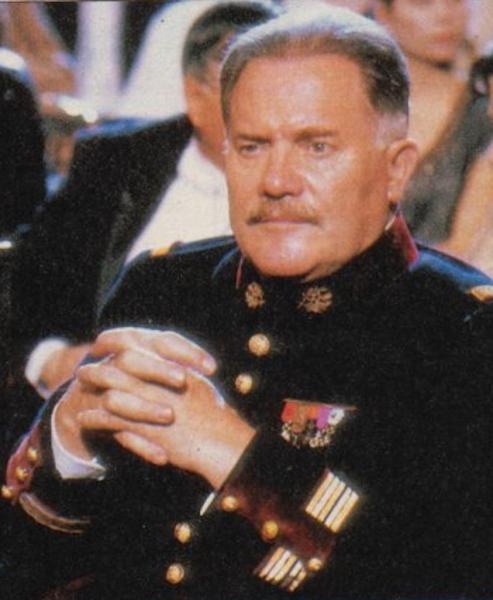 Nuit africaine (La)Long-métrage – 1990Eugène Jamot, médecin de l’armée coloniale, fut un extraordinaire combattant pour la santé en Afrique équatoriale et occidentale dans les années trente. C’est le docteur Jamot qui est venu à bout de la maladie du sommeil…Gaston Kaboré est lié(e) à ce film en tant que adaptateur/trice
Nuit africaine (La)Long-métrage – 1990Eugène Jamot, médecin de l’armée coloniale, fut un extraordinaire combattant pour la santé en Afrique équatoriale et occidentale dans les années trente. C’est le docteur Jamot qui est venu à bout de la maladie du sommeil…Gaston Kaboré est lié(e) à ce film en tant que adaptateur/trice -
 Zan BokoLong-métrage – 1988En pays mossi, le village de Tinga vit à son rythme traditionnel malgré la présence de la grande ville qui le cerne. Jusqu'au jour où des géomètres viennent faire des relev&e…Gaston Kaboré est lié(e) à ce film en tant que réalisateur/trice
Zan BokoLong-métrage – 1988En pays mossi, le village de Tinga vit à son rythme traditionnel malgré la présence de la grande ville qui le cerne. Jusqu'au jour où des géomètres viennent faire des relev&e…Gaston Kaboré est lié(e) à ce film en tant que réalisateur/trice -
 Propos sur le cinémaCourt-métrage – 1986Deux réalisateurs, Souleymane Cissé et Med Hondo, expliquent les problèmes du cinéma africain : la production, l’exploitation, à qui reviennent les recettes ? production : CEE (Bruxelles) support : 16 mm langue …Gaston Kaboré est lié(e) à ce film en tant que réalisateur/trice
Propos sur le cinémaCourt-métrage – 1986Deux réalisateurs, Souleymane Cissé et Med Hondo, expliquent les problèmes du cinéma africain : la production, l’exploitation, à qui reviennent les recettes ? production : CEE (Bruxelles) support : 16 mm langue …Gaston Kaboré est lié(e) à ce film en tant que réalisateur/trice
Livres(s)
-
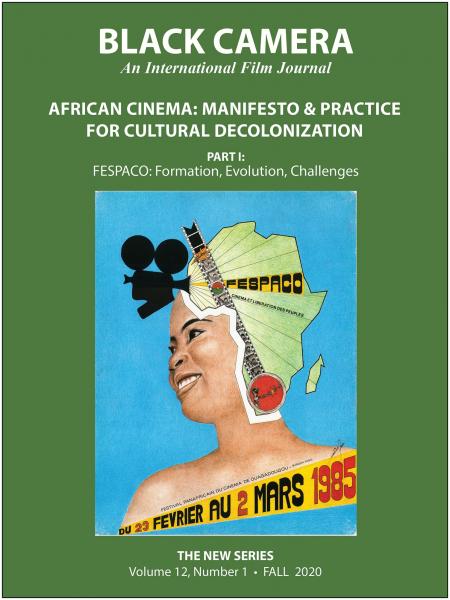 Black Camera: Fespaco / formation, evolution, challengesRevueBlack Camera Vol. 12, No. 1, Fall 2020 Table of Contents Preface (pp. 3-4) Ardiouma Soma Introduction (pp. 5-9) Gaston J.M. Kaboré and Michael T. Martin – I. SITES AND CONTEXTS OF EXHIBITION African Fi…Gaston Kaboré est lié(e) à ce livre en tant que réalisateur/trice
Black Camera: Fespaco / formation, evolution, challengesRevueBlack Camera Vol. 12, No. 1, Fall 2020 Table of Contents Preface (pp. 3-4) Ardiouma Soma Introduction (pp. 5-9) Gaston J.M. Kaboré and Michael T. Martin – I. SITES AND CONTEXTS OF EXHIBITION African Fi…Gaston Kaboré est lié(e) à ce livre en tant que réalisateur/trice -
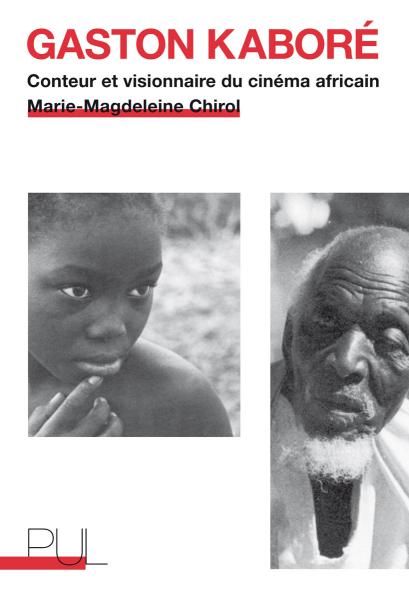 Gaston Kaboré, Conteur et visionnaire du cinéma africainEssaiGaston Kaboré est l’un des pionniers de l’expression cinématographique en Haute-Volta (le pays devient le Burkina Faso en 1984), lorsqu’il réalise en 1982, à 31 ans, son premier long métrage, Wênd Kûuni. Ce fil…Gaston Kaboré est lié(e) à ce livre en tant que réalisateur/trice
Gaston Kaboré, Conteur et visionnaire du cinéma africainEssaiGaston Kaboré est l’un des pionniers de l’expression cinématographique en Haute-Volta (le pays devient le Burkina Faso en 1984), lorsqu’il réalise en 1982, à 31 ans, son premier long métrage, Wênd Kûuni. Ce fil…Gaston Kaboré est lié(e) à ce livre en tant que réalisateur/trice
Partager :




